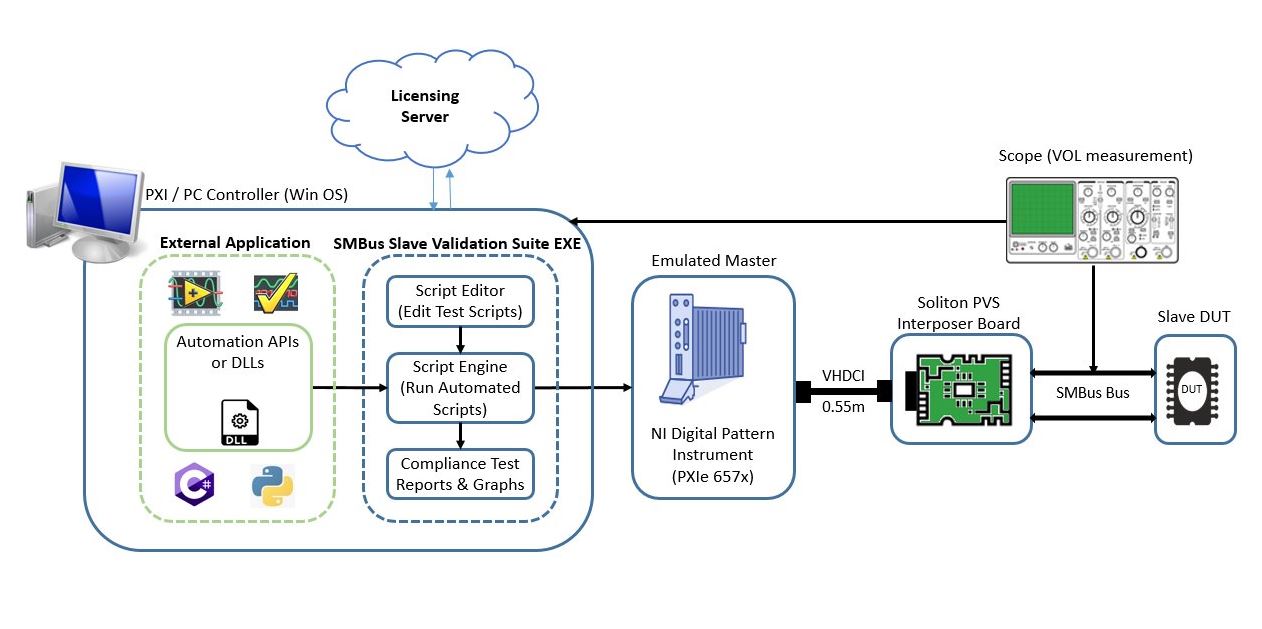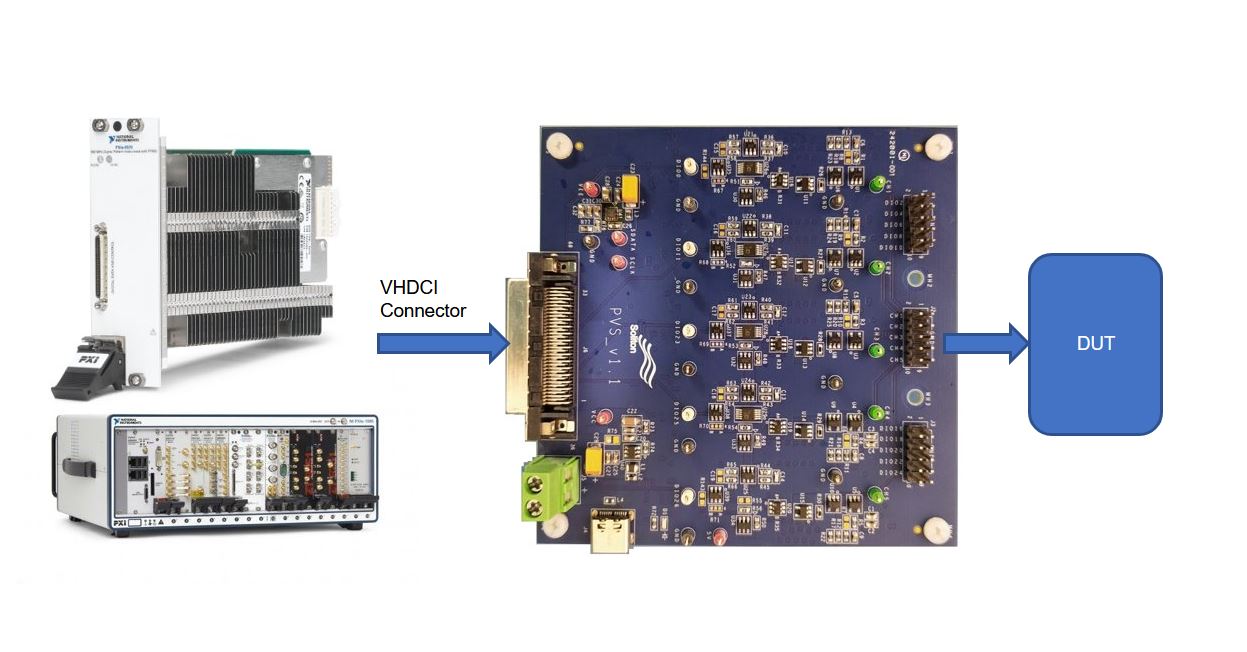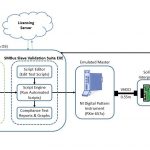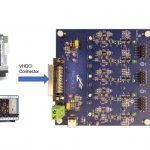DATA SHEET
 Download Datasheet - SMBus Protocol Validation Suite Specifications
Download Datasheet - SMBus Protocol Validation Suite Specifications
Download Datasheet - SMBus Protocol Validation Suite Specifications
Please enter your details, you will receive an immediate automated email with our SMBus Protocol Validation Suite Datasheet.
Product Details
- Overview
- Functional Coverage
- Parametric Coverage
- Features
- FAQ
Overview
The System Management Bus (SMBus) is a two-wire interface through which various system component chips can communicate with each other and with the rest of the system. It is based on the principles of operation of I2C. SMBus provides a control bus for the system to pass messages to and from devices instead of using individual control lines, helping to reduce pin count and system wires.
As a part of product validation, it’s important to validate the product’s conformance against the protocol specification to ensure the interoperability of the product. As the complexity of the protocol and product increases, the validation time of the protocol interfaces also increases which in turn reduces the RTM. Performing the protocol conformance testing in the traditional way needs a lot of time and effort.
Soliton’s SMBus Validation Suite is an off-the-shelf validation tool using NI’s PXI platform, which helps to validate the devices’ compliance with the timing and electrical specifications of the SMBus protocol. The tool can also validate the devices tolerance to and recovery from a variety of SMBus faults & exceptions and provides a comprehensive set of reports. Users have claimed that using this automated solution for SMBus Validation has brought down the test time/ validation time from a few weeks to a couple of days.
Functional Coverage
MODES OF OPERATION
- Low Power Mode
- High Power Mode
- 100 kHz
- 400 kHz
- 1 MHz
FUNCTIONAL TESTS
- Quick Command
- Send Byte
- Receive byte
- Write Byte/Word
- Read Byte/Word
- Write 32/64 Protocol
- Read 32/64 Protocol
- Block Write
- Block Read
- Process Call
- Block Write-Block Read Process Call
PROTOCOL FEATURES
- Clock Low Extending
- Packet Error Checking (PEC)
- Address Resolution Protocol (ARP) Commands
- Power-on Reset (POR)
FAULT TESTS
- Send additional clock bit
- Skip clock bit
- Skip START / STOP/ RP-START/ BYTE/ACK
- Send NACK
- Send ACK for last Read Byte
- Send invalid Address / Command Data Byte
- Send PEC with invalid CRC value
- Extend SCL beyond tLOW; MEXT
Parametric Coverage
Timing Validation
- fSMB (SMBus Clock Frequency)
- tBUF (Bus Free Time between a Stop and Start Condition)
- tHD;STA (Hold Time (repeated) Start Condition)
- tSU;STA (Setup Time for a Repeated Start Condition)
- tSU;STO (Setup time for STOP Condition)
- tHD;DAT (Data Hold Time)
- tSU;DAT (Data Setup Time)
- tTIMEOUT (Detect Clock Low Timeout)
- tLOW (Low Period of the SCL Clock)
- tHIGH (High Period of the SCL Clock)
- tR (Rise Time of SCL/SDA Signal)
- tF (Fall Time of SCL/SDA signal)
- tSPIKE (Pulsewidth of spikes to be filtered)
- tLOW:SEXT (Cumulative Clock Low Extend Time – Target)
- tLOW:MEXT (Cumulative Clock Low Extend Time – Master)
- tPOR (Time taken for device to be operational after POR)
Electrical IO Parameters
- VIL (Low level input voltage)
- VIH (High level input voltage)
- Vhys (Hysteresis of Schmitt Trigger inputs)
- VOL (Low level output voltage)
Features
Features of SMBus Protocol Validation
- Simple, Flexible, Modular, and Light Bench Setup
- Easy to use SMBus Protocol Exerciser and Debugger to perform various SMBus transactions with controllable timings/voltage levels
- Protocol compliance testing with zero coding
- Comprehensive reporting feature to report the test pass/fail reports
- Reproduce failure cases in a few clicks
- Easy to build and test custom device-specific tests
- Automation Capability (DLLs/APIs) from external programming environment/automation frameworks like LabVIEW, C#, Python, TestStand, etc
- Leverage Soliton’s experience in protocol validation and debugging
FAQ
Do I always need to test for full SMBus compliance?
No, this is not always the case. If your customer has a very narrow use case, or your chip’s SMBus IP is the same as a previously tested chip, then it is possible that you do not need the extensive validation that our service/suite provides.
Can't I build a home-grown solution instead?
While this is certainly an option, we expect that it will take a highly experienced automation engineer between 3-6 months to create the first version of a similar tool. To create a robust and flexible tool takes experience, and we have been improving this tool over the last 3 years since release. We believe it is worth the cost to skip the learning curve and avail of our comprehensive report or validation suite.
What else can I do with NI's PXI chassis/modules?
The 6570 module is a general-purpose programmable pattern generator and acquisition device with deep memory. It can be programmed using LabVIEW or other programming languages to emulate any synchronous digital protocol with 5ns resolution and 39ps line skewing resolution. NI’s PXI chassis supports high bandwidth and synchronization-friendly control and read back from a huge variety of digital, analog, and special-purpose modules in a compact form factor.
What version of SMBus spec is supported?
Currently, the tool supports SMBus spec version 3.1
Can I build custom tests on top of SMBus protocol?
The tool comes with a flexible test editor that allows the user to create custom test cases using the SMBus functions provided.
Can the tool be used for out-of-the-box validation?
Yes, The tool comes with readily available test scripts which can be used for validation after entering the device-specific details
Why was SMBus Master- SMBus Slave terms are renamed to SMBus Controller SMBus-Target?
As a part of terminology replacement efforts, we have deprecated the Master-Slave terminologies and replaced them with Controller-Target terminologies in our documents. When the SMBus Organization finalizes a different terminology, we will be updated new terminology
Technical Documentation
Soliton’s SMBus Validation Suite is an off-the-shelf validation tool using NI’s PXI platform, which helps to validate the devices’ compliance with the timing and electrical specifications of the SMBus protocol. It contains the below components.
- NI PXIe 657x – Digital Pattern Generation Card with the PXIe Chassis setup
- Soliton PVS Interposer Board
- Oscilloscope – For performing voltage measurements
- Soliton SMBus Validation Suite Software compatible with Windows OS (Win 10)
For more details, download the datasheet



Download Datasheet - SMBus Protocol Validation Suite Specifications
Please enter your details, you will receive an immediate automated email with our SMBus Protocol Validation Suite Datasheet.
Hardware
Soliton’s SMBus Validation suite is based on the NI – PXI Platform and the NI part configuration lists the hardware required to perform the validation
The Solution also contains a Soliton Interposer Board for signal conditioning purposes.
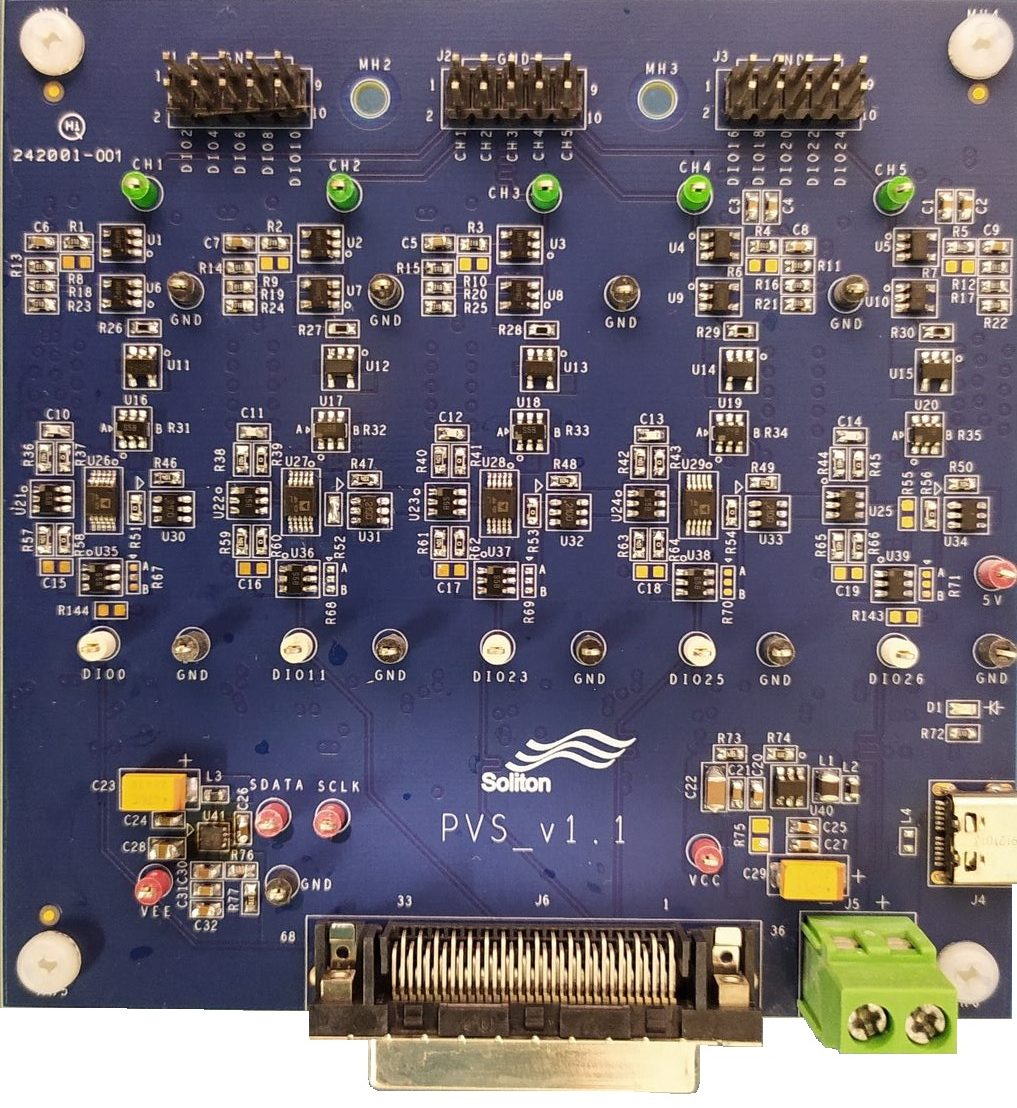

Support & Training
For any queries, contact us at [email protected]. We will respond within 1 Business day.
TYPICAL USER BASE FOR SMBus VALIDATION SUITE
- Design Engineers, Test Engineers, Post Silicon Validation Engineers, Engineering Managers, Validation Managers, Lab Managers, etc from the Semiconductor Industry
- Post Silicon validation of Chips with SMBus interface
- Semiconductor Chip Manufacturers making SMBus Devices
- Product Manufactures making products with SMBus interface
- Memory, NVMe SSD Manufacturers to test against SMBus Specifications
- Smart Battery System Manufacturers to test against SMBus Specifications
OTHER PROTOCOL VALIDATION SERVICES OFFERED BY SOLITON
I2C Protocol Validation ![]()
![]()
![]()
![]()
![]()
![]()
![]()
![]()
![]()
![]()
![]()
![]()
![]()
![]()
![]()
![]()
![]()
![]()
![]()
![]()
![]()
![]()
![]()
![]()
![]()
![]()
![]()
![]()
![]()
![]()
![]()
![]()
RFFE Protocol Validation ![]()
![]()
![]()
![]()
![]()
![]()
![]()
![]()
![]()
![]()
![]()
![]()
![]()
![]()
![]()
![]()
![]()
![]()
![]()
![]()
![]()
![]()
![]()
![]()
Blogs & Case Studies



THE BUILD V/S BUY DILEMMA
What would you do if you had 2 hours? Hit the gym, watch a movie, or clean up your inbox? Endless possibilities! But what if you could perform complex task in 2 hours...


Faster, Easier, Reliable MIPI I3C® CTS Validation Tool
With digital protocols becoming more sophisticated, it becomes essential to ensure the interoperability of the devices by making sure they are compliant with protocol standards ...



An ATE class Digital Protocol Validation using Benchtop PXI instrument
Semiconductor chips are becoming more intelligent, thereby increasing the amount of data transfer as well. This has also paved the way for the evolution of digital communication...


Easier Protocol Validation – Now a Reality
Every chip holds a big history of validation. Every Validation engineer has a tale to tell. A tale that narrates the long hours of validation, design of hardware and software ...


Woes of Protocol Validation
Inevitable long hours of testing, designing a prototype, taking down measurements, logging of reports, debugging unexpected results, and of course, racing behind the ...


Code Less. Validate More
When it comes to digital protocols, if there is one term that resonates with every validation engineer, it is protocol compliance testing...


The Role of MIPI I3C® Protocol in SSDs:
Solid State Drives (SSDs) have transformed the storage landscape with their superior performance and reliability compared to traditional HDDs. Protocols such as...


Soliton was clearly the best choice for I2C Validation System
Vesper Technologies, Inc. microphones hit the market early thanks to Soliton’s I2C Compliance and Comprehensive Validation Product.


Validation Beyond Protocol Exerciser
A prominent semiconductor manufacturer that specializes in the design and production of microcontrollers, microprocessors, and integrated circuits and known for their reliable...


Protocol Validation turned from Night to Day
A well-known semiconductor company with a global presence needed to validate I2C compliance for their silicon chip design. Initially, they developed an in-house tool to fulfill...


Saving Protocol Validation Time without compromising Results
A highly esteemed and globally recognized company in the semiconductor industry relied on an internally developed tool for validating the I3C protocol in one of their product...


Precise Protocol Validation Solution
In the dynamic landscape of semiconductor innovation, precision and efficiency are paramount. This case study offers an illuminating exploration of how Loris Gouilly...
No Data Found
No Data Found
No Data Found
Demo Request Form
Please fill in the following form and we shall get in touch with you soon to set up a demo of the requested service/product. Thank you!
Error: Contact form not found.
DOWNLOAD NOW
Fill in this form and submit for your download to start automatically
Error: Contact form not found.
Download PRIM Brochure
Submit this form and the PRIM Brochure document will be sent to your email.
Error: Contact form not found.
